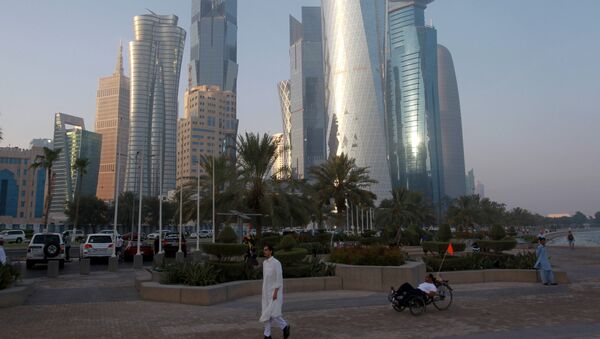"Any official ‘agreement’ between Qatar and the Saudi-led group to reduce support for Islamic fundamentalists, appears to be dubious in the extreme," Paul said on Wednesday. "They are unlikely to join an effort to block financing of terrorist organizations because both sides are the main promoters of Islamic fundamentalism."
US pressure on Qatar to crack down on the Islamist terror groups could not be taken seriously either as Washington under successive presidents had tacitly permitted the arming and financing of those groups for so long, Paul recalled.
"The ‘Western’ powers – the United States in particular – have shown no serious inclination to block these policies, which are closely aligned with US policy," he said.
US-Saudi funding for the mujahedeen in Afghanistan was now widely-known but the United States had remained active in funding and secretly supporting other Islamist terror groups around the world, Paul pointed out.
"There have been many subsequent covert operations by Washington to back Islamic fundamentalists in Kosovo, Syria, Libya, and other conflict areas, in concert with the US’s Gulf friends [and[ ongoing wars in Yemen, Syria and Libya have been sites for such proxy battles," he said.
US support for Islamist groups had been particularly important in Washington’s unsuccessful efforts to destabilize and topple President Bashar Assad of Syria over the past six years, Paul noted.
"Syria has been the most important scene for this policy in recent years, with support for fundamentalism advancing Western goals of regime change. Control and privatization of regional oil resources is the major goal of this policy," he explained.
The real reason for the hostility between Riyadh and Doha was that the Saudis and Qataris were competing with each for the prestige of being the main supporters of Islamist terrorism, Paul continued.
"The Saudi-Qatari rivalry has been on a boil for a number of years, as each side has sought to advance its own leadership of regional geopolitical forces and Islamic groups, using their immense wealth in oil and gas to promote their own political ends," he added.
However, internal politics within Saudi Arabia and Qatar suggested that both monarchies may be headed towards their own political meltdowns, Paul warned.
"Washington may be hoping to calm these troubled waters and coordinate the ‘Sunni’ camp to as to assure the ongoing privatization of the state oil companies, to keep Iran in check, and to insure the US role as primary power in the region," he concluded.
James Paul served as Global Policy Forum (GPF) Executive Director from its foundation in late 1993 through the end of 2012 and was the representative to the International Federation of Human Rights at the UN. He has received the World Hunger Media Award and a "Peacemaker" award from the Nuclear Age Peace Foundation.



